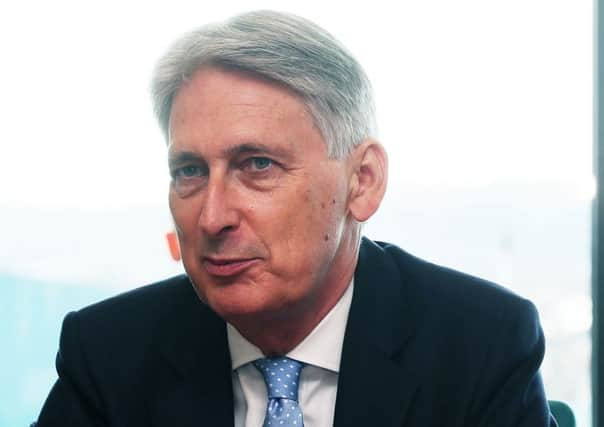Ian Swanson: Independence uncertain despite horrors of Brexit


British citizens living abroad could lose access to payments from their bank accounts, organic food producers would face new hurdles and ex-pats could face problems with their pensions.
But the government rejected warnings of a “sandwich famine” and denied any plans to deploy the army to ensure food supplies.
Advertisement
Hide AdAdvertisement
Hide AdCritics fear the documents published last week do not reflect the full horror of the situation, the massive expansion of bureaucracy and the damage to people’s livelihoods if the UK crashes out of the European Union without any deal.
Some suspect the apparent preparations for a no-deal are a tactic to satisfy the Tories’ arch Brexiteers and help keep them quiet in the run-up to the party conference, as well as sending a message to Brussels that the UK will not be pushed into signing just any deal.
But Brexit Secretary Dominic Raab did not welcome the intervention of Chancellor Philip Hammond when he warned a no-deal Brexit would create an £80bn black hole in the public finances.
Mr Raab says reaching a proper agreement with the other 27 EU member is “by far the most likely outcome”.
Advertisement
Hide AdAdvertisement
Hide AdBut it is sometimes difficult to know what the government’s policy on a Brexit deal really is.
A satirical play at the Fringe, entitled simply Brexit, featured a new prime minister who appoints a leading Remainer and an ardent Brexiteer to two key posts in his Cabinet.
He tells them each what they want to hear about how he plans to handle the issue, but pursues a strategy of what he describes as “frenetic inertia”, allowing both sides to think they are making gains while he throws all his energy into doing nothing, hoping something else will happen to change the situation.
Time is running out for Theresa May and her ministers. The UK is scheduled to leave the EU on March 29 next year, but the withdrawal agreement needs to be settled well before that to allow the UK and European parliaments time to approve it.
Advertisement
Hide AdAdvertisement
Hide AdThe EU summit beginning on October 18 is the target date, but ministers are already saying the timetable is slipping.
Meanwhile, former European Council president Herman van Rompuy has spoken out, saying a no-deal Brexit would not just be a problem for the EU and the UK but “an existential threat to the UK itself”.
Carles Puigdemont, the exiled former president of Catalonia, also predicted Scotland would break away from the UK if there is no deal.
“The pro-European commitment in Scotland is strong, and an independent Scotland would be a full member of the European Union,” he said.
Advertisement
Hide AdAdvertisement
Hide AdNo one knows how this saga is going to play out. The politicians are divided as ever and none of scenarios are very appealing.
Scotland voted differently from the UK as a whole in the 2016 referendum yet there is little sign of that leading to stronger support for independence so far.
A no-deal Brexit might be enough to change that – or it might not.